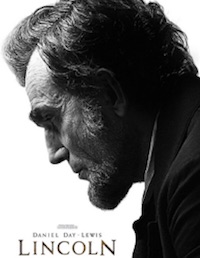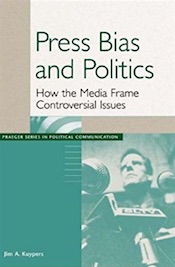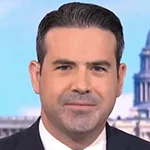 |
We sat through a 2.5-hour movie called “Lincoln” in 2012 and read a host of ecstatic reviews. We couldn’t help but recalling communications Prof. Jim Kuypers’ view that economic issues, including the North’s imposition of a 47% import tax, were the main drivers of the Civil War and not slavery.
Kuypers, previously with Dartmouth and now at Virginia Tech, said Lincoln was playing up to his Northern industrialist supporters, some of whom got rich supplying slaves to both the North and South. No Southern ships were involved in that trade.
The Revolutionary War, he notes, got started over a mere 3% tax on tea.
|
|
No believer in black equality, Lincoln horse-traded to get the 13th Amendment passed abolishing slavery (except for those convicted of crimes). But when asked what should be done to the freed blacks he responded, “deport them all.”
The remark was made to Union General Benjamin Butler following the war.
A bid by the South to end slavery if the Union army withdrew had been rejected. Congress also offered to guarantee permanent slavery in the slave states if the South would return to the Union.
Below is a passage from The Institute for Historical Review:
“Between late August and mid-October, 1858, Lincoln and Douglas travelled together around the states to confront each other in seven historic debates. On August 21, before a crowd of 10,000 at Ottawa, Lincoln declared: I have no purpose directly or indirectly to interfere with the institution of slavery in the states where it exists. I believe I have no lawful right to do so, and I have no inclination to do so. I have no purpose to introduce political and social equality between the white and black races.
“There is physical difference between the two which, in my judgment, will probably forever forbid their living together upon the footing of perfect equality, and inasmuch as it becomes a necessity that there must be a difference, I, as well as Judge Douglas, am in favor of the race to which I belong having the superior position…I will say then that I am not, nor ever have been, in favor of bringing about in any way the social and political equality of the white and black races; I am not nor ever have been in favor of making voters or jurors of negroes, nor of qualifying them to hold office, nor to intermarry with white people.”
Mencken Raps Gettsyburg Address
Kuypers, reached by phone, had not seen “Lincoln” yet but supplied a quote by iconoclast H.L. Mencken that threw cold water on the words of Lincoln’s Gettysburg Address that are featured at the start of the movie.
Calling it both “the shortest and most famous oration in American history,” Mencken praised its “eloquence” but said it was “poetry, not logic, beauty, not sense.” Lincoln praised the Union soldiers who died at Gettysburg for supporting a government “of the people, by the people, for the people” but the Union soldiers actually fought against self-determination, says Mencken.
“It was the Confederates who fought for the right of their people to govern themselves,” he wrote. His description of the Address was that “It is difficult to imagine anything more untrue.”
Alabama State Senator Davidson Quoted
 |
Kuypers’ 2002 book, Press Bias and Politics, How the Media Frame Controversial Issues, covers the attacks that Alabama State Senator Charles Davidson came under in 1996 when he wrote that economics and political self-determination were the causes of the War that cost 600,000 lives rather than slavery and that the Confederate flag symbolized states’ rights rather than slavery.
Northern states wanted high taxes on imports to block competition from England and France which were trading manufactured products for the South’s cotton.
According to Davidson, all Southerners fought in the war including whites, blacks, Indians, rich, poor and members of all religions.
Economic aspects of the Civil War are unmentioned in the movie with most of the focus on the deals Lincoln made to get the 13th Amendment passed.
Enforcement of Amendment Was Weak
The Free Legal Dictionary by Farlex says enforcement of the 13th, 14th, and 15th Amendments, dealing with individual rights, was weak.
“For many decades, however, the goals of the Civil War Amendments were frustrated. Due perhaps to the waning public support for postwar Reconstruction and the nation's lack of sensitivity to individual rights, the U.S. Supreme Court severely curtailed the application of the amendments. The Supreme Court thwarted the amendments in two ways: by restrictively interpreting the substantive provisions of the amendments and by rigidly confining Congress's enforcement power.”

 Jim Kuypers
Jim Kuypers
 Husch Blackwell Strategies has added FleishmanHillard alum Michael Slatin as a principal in its public affairs group.
Husch Blackwell Strategies has added FleishmanHillard alum Michael Slatin as a principal in its public affairs group. Rory Cooper, a veteran Republican operative and policy specialist, has joined Teneo’s Washington office as senior managing director in its strategy & communications practice.
Rory Cooper, a veteran Republican operative and policy specialist, has joined Teneo’s Washington office as senior managing director in its strategy & communications practice. Brian Fallon, who served as national press secretary for Hillary Clinton’s 2016 presidential run, is signing on next month as Vice President’s Kamala Harris’ campaign communications director.
Brian Fallon, who served as national press secretary for Hillary Clinton’s 2016 presidential run, is signing on next month as Vice President’s Kamala Harris’ campaign communications director. TikTok is nothing more than a Chinese propaganda tool that poses “a grave threat to America’s national security and, in particular, impressionable children and young adults,” say two Congressmen who want the platform registered as a foreign agent.
TikTok is nothing more than a Chinese propaganda tool that poses “a grave threat to America’s national security and, in particular, impressionable children and young adults,” say two Congressmen who want the platform registered as a foreign agent. Public Strategies Washington has added Abbie Sorrendino, a former aide to now Senate Majority Leader Chuck Schumer.
Public Strategies Washington has added Abbie Sorrendino, a former aide to now Senate Majority Leader Chuck Schumer.


 Have a comment? Send it to
Have a comment? Send it to 
No comments have been submitted for this story yet.